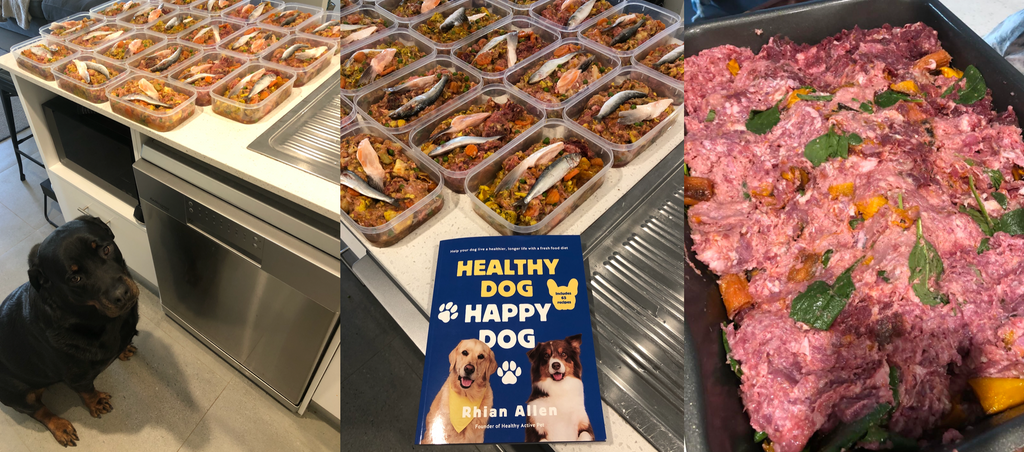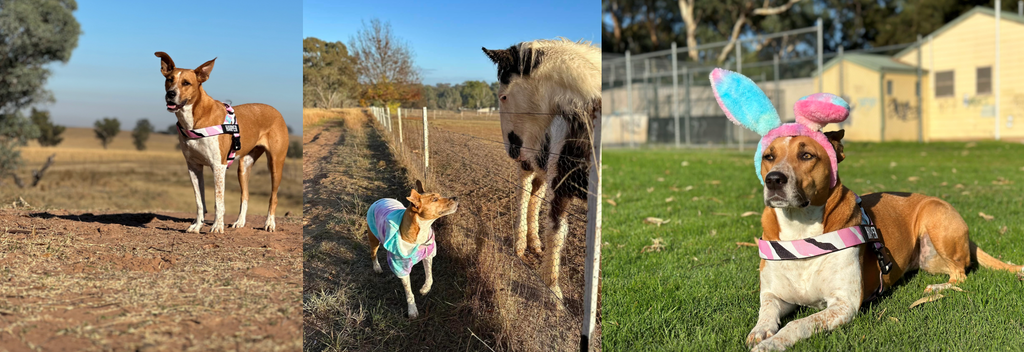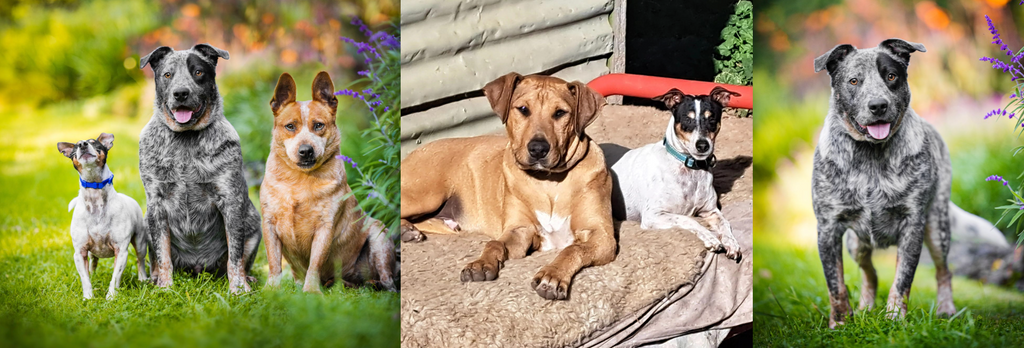
Why Senior Dog Food And Senior Dog Diet Has Different Nutritional Needs
As our dogs age, similarly to humans, their bodies go through significant changes therefore, their dietary needs need to evolve with different life stages.
A senior dog diet is different to a younger dog and it is important to feed your senior dog food that is appropriate.
Ensuring your dog’s nutritional needs are met through their dog food can make a profound difference in the quality of their life, especially for senior dogs.

When is a dog a senior dog?
To set the premise, there are six life stages to a dog - puppy, junior, adult, mature, senior, and geriatric.
Puppies are from birth to about 7 months old. Junior dogs have grown out of the puppy stage but are in their adolescent years and are still growing, this lasts until 1-2 years of age depending on the breeze and size.
A dog that is in the middle to ¾ of their life span would be considered a mature dog, also breed and size dependent.
The last quarter of a dog's expected life span would classify them as a senior citizen. And if you’re lucky, you will have a healthy geriatric dog, that would mean they are living at their life expectancy and beyond!
Each life stage for a dog comes with a distinct set of nutritional requirements. Puppies need a diet rich in calories and nutrients to support rapid growth and development. Adult dogs require a balanced diet to maintain their health and energy levels.
With senior dogs, their diet needs to shift as every part of their body slows down and the likelihood of chronic illnesses arises.
And a great way to feed your senior dog is to feed them raw dog food recipes for senior dogs - and as this is such a good way to feed a senior dog, we have created a raw dog food recipe book specifically for a senior dog - you can see it here

Slower Metabolic Rate
Similarly to humans, the metabolic rate in a dog changes as they age.
When a dog reaches the senior life stage, their metabolism slows down drastically which often leads to decreased activity and energy needs.
This puts senior dogs at a higher risk of weight gain if their caloric intake is not adjusted.
Obesity is one of the leading causes of death and can cause further health issues especially ones that are already prevalent in older dogs such as diabetes, arthritis, and heart disease.
It is important to tailor their diet to one consisting of nutrient rich but lower-calories foods.
Less Efficient Digestive System
Senior dogs’ digestive systems also become less efficient.
To improve digestive health, diets higher in fibre can be beneficial. Fibre helps regulate bowel movements and aids in managing weight by providing a feeling of fullness.
Make sure to balance carefully as too much fibre could interfere with the absorption of essential nutrients.
Maintaining Muscle Mass
While aiming to keep your senior dog’s weight under control, the protein intake cannot be sacrificed.
It is crucial to include high-quality protein in their meals to maintain muscle mass, which tends to decline with age.
Senior dogs might even benefit from more protein than younger adults in efforts to preserve muscle tissue.
While this would depend on individual dogs and their health condition, protein intake can be increased as long as they do not have specific medical conditions limiting protein intake.
Take Care of Their Joints
One common thought when it comes to aging is joint health.
As a dog ages, the wear and tear on their joints can lead to discomfort and mobility issues. Incorporating foods like omega-3 fatty acids will be beneficial to help alleviate and slow the progression of joint problems.
Decreased Appetite and Hydration Needs
With an aging dog, appetite can be affected by decreased senses of smell and taste.
Ensuring their senior dog food and meals consist of fresh ingredients can make it more appealing.
Having food with enough moisture, such as wet/re-hydrated food, fresh food, or raw food, will contribute to their water intake and be more appealing to senior dogs as well. With moisture packed food, it will help maintain adequate hydration to support kidney function.
Paying close attention to your senior dog’s dietary needs and making the appropriate adjustments will support the continued wellbeing of their health as they age.
Preventing illness and increasing longevity and quality of life is where the key focus lies when caring for a senior dog.
Always consult with your vet to understand your dog’s state of health and from there be able to tailor your dog’s diet to their individual needs.
We have created a raw dog food recipe book specifically for a senior dog - you can see it here




